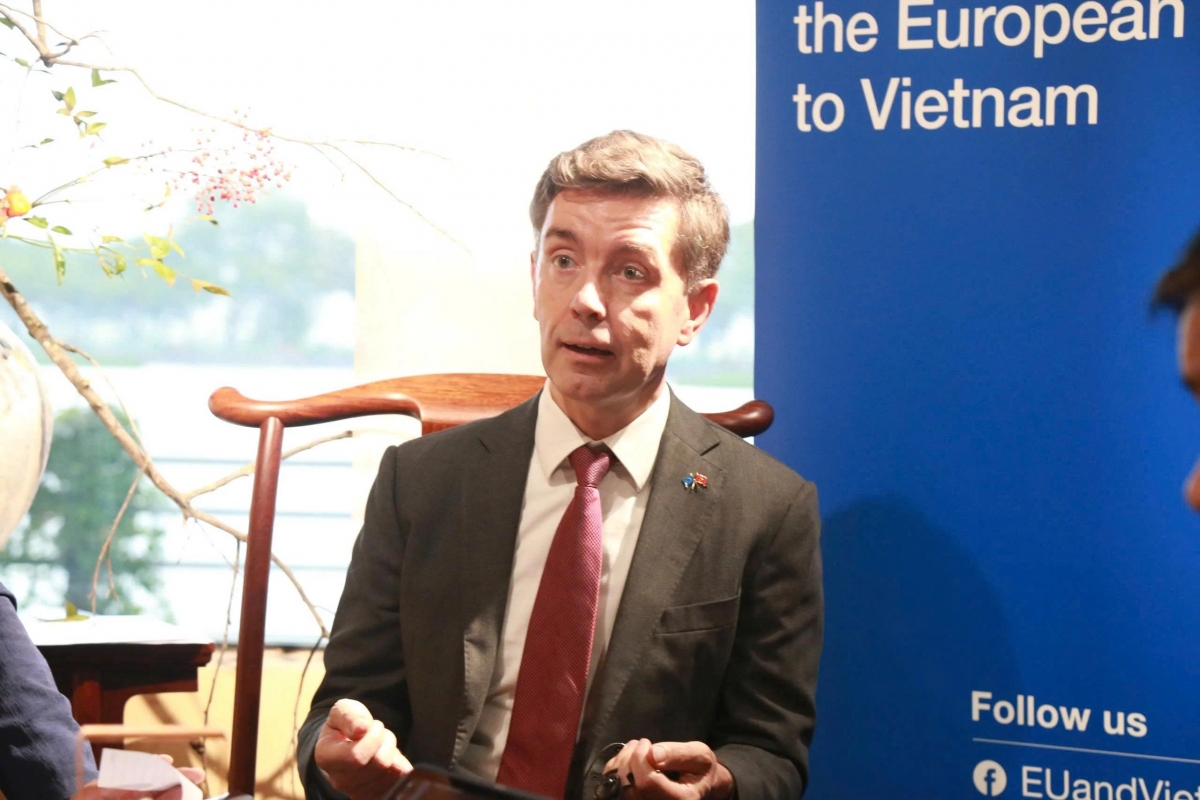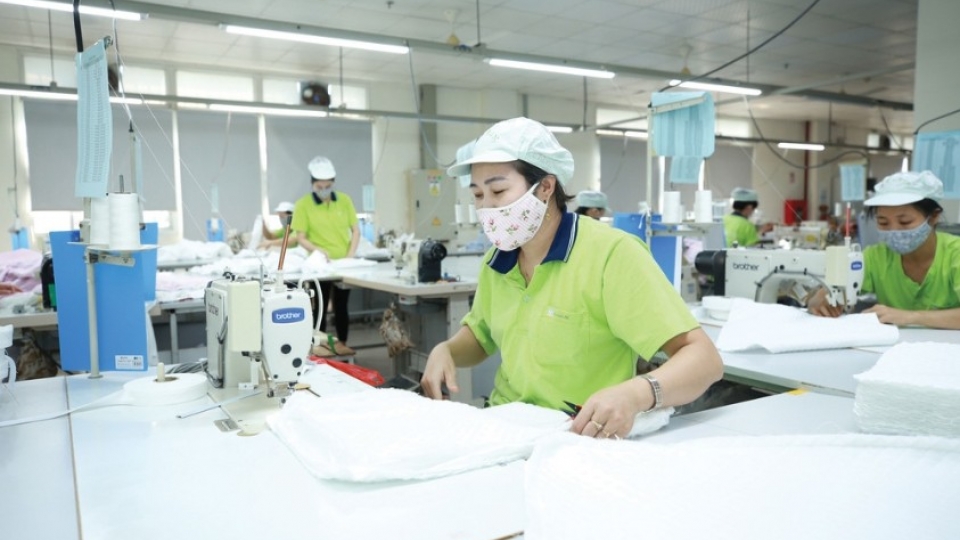European Union expects to soon upgrade relations with Vietnam
VOV.VN - The European Union’s Ambassador to Vietnam, Julien Guerrier, has confirmed that the EU and Vietnam are closely coordinating to advance the upgrade of bilateral relations to a Comprehensive Strategic Partnership.

Speaking at a press briefing on November 18 marking 35 years of diplomatic relations, the Ambassador emphasised that the EU aims to build a wide-ranging, in-depth, and multidimensional framework capable of guiding cooperation between the two sides for decades to come.
According to the Ambassador, this process requires time for detailed discussions across various fields, and it may be marked by a high-level visit between EU and Vietnamese leaders.
35 years of developing Vietnam–EU relations
Guerrier stated that the EU - Vietnam relationship has become one of the EU’s most deeply developed partnerships in the ASEAN and Indo-Pacific region, with Vietnam considered a key partner in the EU’s regional strategy.
In his opinion, there are major pillars that define the relationship, namely trade and investment, climate action, and security and defence.
Vietnam is now the EU’s top trading partner in ASEAN and ranks 16th globally. Bilateral trade has grown by 40% in the past five years, reaching over EUR65 billion. The EU’s FDI in Vietnam has increased from EUR22 to 30 billion, expanding opportunities for Vietnam-made products to enjoy tariff exemptions when re-exported to Europe.
Both sides are committed to achieving net-zero emissions by 2050. Through the Just Energy Transition Partnership (JETP), the EU and other donors have pledged EUR15 billion to support renewable energy in Vietnam. Significant progress has been observed in major projects such as the Bac Ai hydropower plant, Tri An hydropower plant, and the Tra Vinh wind farm.
The two sides also reaffirm their commitment to multilateralism, respect for international law, including the 1982 United Nations Conventon on the Law of the Sea (UNCLOS), and safeguarding freedom of navigation in the East Sea, known internationally as South China Sea. The EU also supports Vietnam in peacekeeping training.
Supporting Vietnam’s developed country goal by 2045
Ambassador Guerrier emphasised the EU’s readiness to strongly support Vietnam’s ambition to become a developed economy by 2045. One key instrument is the Global Gateway Initiative, which focuses on energy, transport, and digital infrastructure investments.
He noted that Vietnam’s most significant challenge is its infrastructure’s inability to keep pace with economic growth. The EU will assist Vietnam in expanding green energy capacity, helping reduce dependence on imported fossil fuels and boosting green export competitiveness. In transport, the EU plans to launch a new sustainable mobility facility next year, aimed at modernising the railway system and supporting high-speed rail development.
Beyond public funding, European private companies are also rapidly increasing investments in Vietnam, especially in high-tech sectors.
Working together toward trade balance
The EU representative expressed the EU’s desire for a more balanced trade relationship based on mutual fair market access. A high-level task force has been established to monitor and resolve trade issues, aiming for a more balanced bilateral trade environment.
Regarding the EU–Vietnam Free Trade Agreement (EVFTA), the EU considers it a fundamental pillar of the economic partnership. However, the agreement’s full potential has yet to be realised due to administrative hurdles and a long tariff-reduction schedule extending to 2030. The EU urged Vietnam to minimise bureaucratic procedures to unlock the full benefits of the EVFTA.
The EU also encourages Vietnamese businesses to invest in Europe. Although Vietnam’s investment volume remains modest, the EU welcomes growing interest from companies in the IT software sector and several textile-related investments.
Efforts to have IUU yellow card removed
Talking about Vietnam’s efforts to have the EU’s illegal, unreported and unregulated (IUU) yellow card removed, Ambassador Guerrier said the EU highly values the close cooperation maintained with Vietnam over the past eight years. He noted that Vietnam has carried out a comprehensive overhaul of its legal framework on fishing and seafood exploitation to align with international standards, and that the key issue now lies in further improving the effectiveness of on-the-ground implementation.
According to the Ambassador, a significant highlight is Vietnam’s strong push to install vessel monitoring systems (VMS) on all fishing boats 15 m or longer. He acknowledged the close guidance of the Ministry of Agriculture and Environment, as well as the strong and proactive direction of the Prime Minister in urging coastal provinces to comply with regulations.
The Prime Minister holds weekly meetings with leaders of coastal localities to review progress, address obstacles, adjust enforcement measures, and require strict sanctions for violations.
In October, the Ministry of Agriculture and Environment submitted an updated report to the EU. However, the Ambassador said Vietnam still needs to clarify a number of issues, particularly data related to traceability and fishing vessel movements. He emphasised that this work requires additional time to ensure accuracy and consistency.
He affirmed that the EU is committed to continuing close cooperation with Vietnam to achieve concrete results as soon as possible, in order to move toward the removal of the yellow card.






